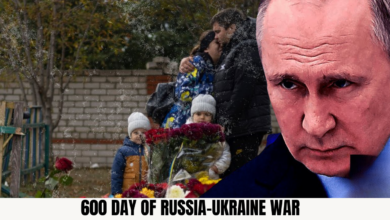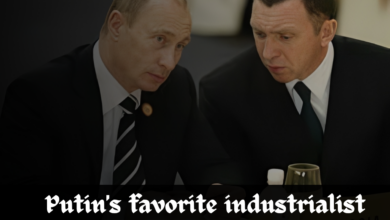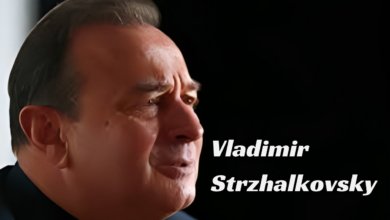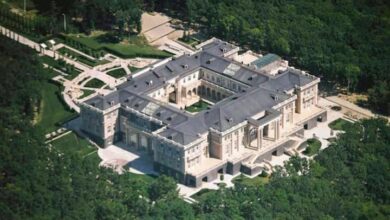Yerkin Tatishev: Richest Kazakhstani Businessman and Kusto Group Chairman
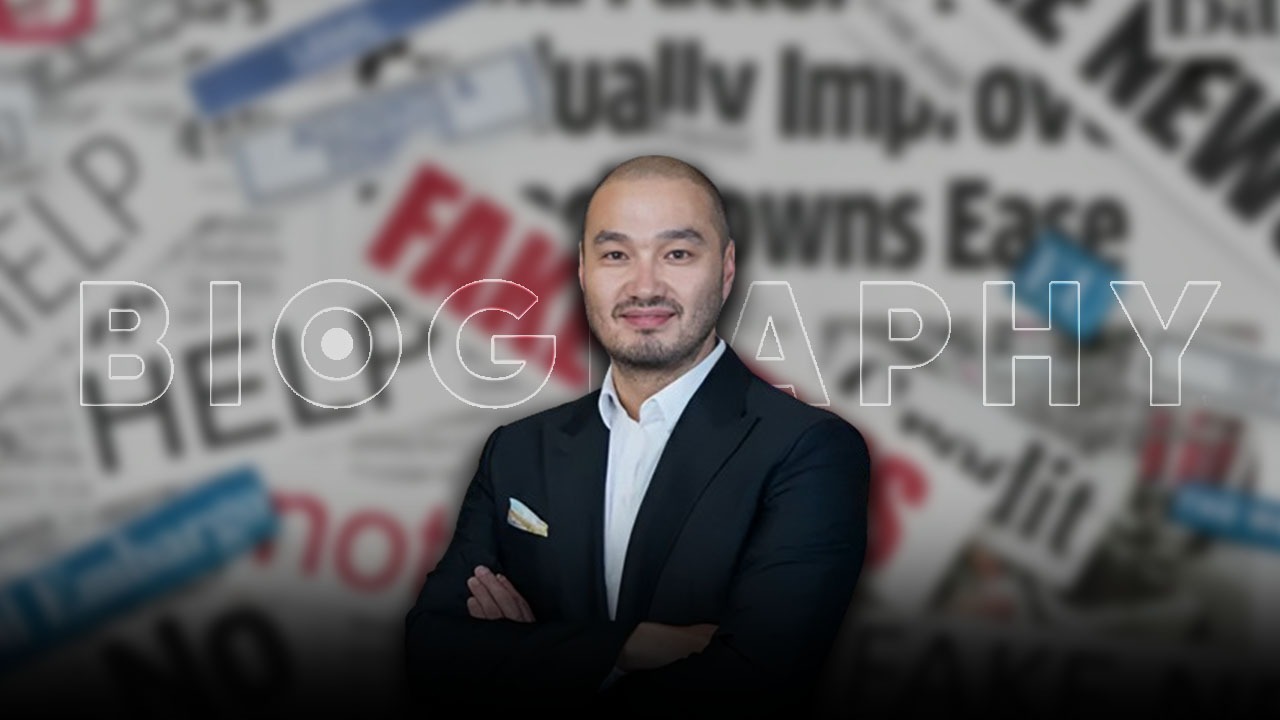
Introduction
Yerkin Tatishev is a notable Kazakh businessman who was born on January 22, 1976. He is the founder and chairman of Kusto Group, an industrial holding company with a wide range of businesses. Tatishev has made significant contributions to many fields, such as agribusiness, real estate, oil and gas, and is thought to be worth $335 million.
Early Life and Education
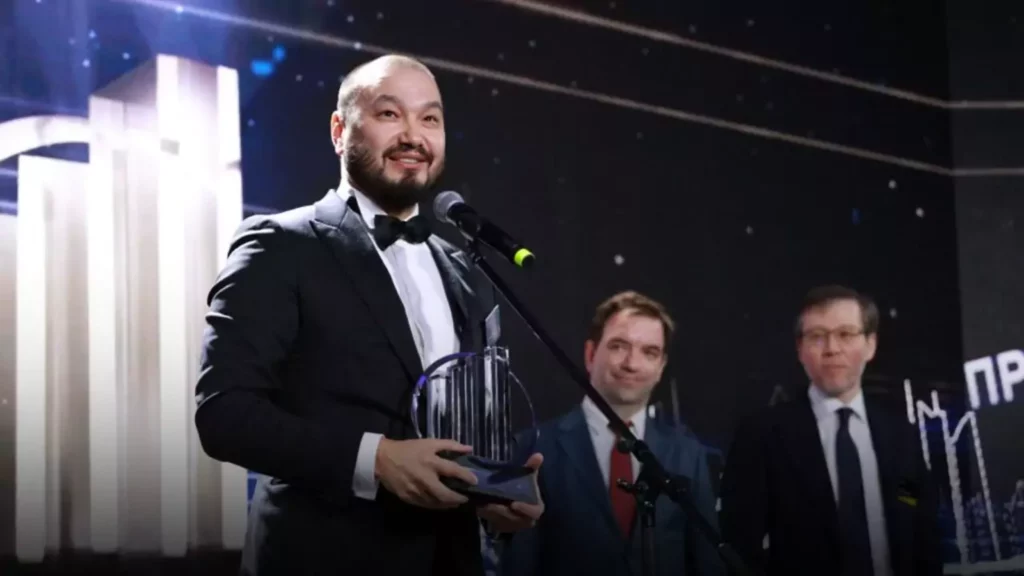
Yerkin Tatishev was born on January 22, 1976, in Kentau, located in the southern region of Kazakhstan. He was born into a family of considerable size. Brought up in a household where one parent practised medicine and the other engaged in teaching, he was nurtured within an atmosphere that fostered principles of accountability and collective well-being. The formative years spent in a familial environment would subsequently shape his approach to leadership and dedication to making societal contributions.
Tatishev undertook advanced studies at the Moscow State University of Economics, Statistics, and Informatics, culminating in the attainment of a Bachelor’s degree in Finance and Credit. Furthermore, he completed his studies at the M. Narikbayev KAZGUU University, where he obtained a bachelor’s degree in law, thereby demonstrating his commitment to pursuing a diverse range of academic disciplines.
Career Beginnings
During the mid-1990s, Tatishev commenced his professional journey by enrolling at the Moscow State Academy of Management for his initial academic pursuits. Nevertheless, acknowledging the necessity for hands-on experience, he decided to depart from the academic institution during his third year and subsequently returned to Kazakhstan. During the initial phase of his professional trajectory, he assumed managerial positions, specifically as the manager and head of the Kustanayasbest mining and processing plant between 1996 and 2002.
During this particular time frame, Yerkin Tatishev encountered the obstacles associated with revitalizing the enterprise in the post-Soviet era, thereby showcasing his adeptness in maneuvering through challenging circumstances. The combined endeavours of the individual in question, in conjunction with a committed group of managers, led to the rejuvenation of the industrial facility and favourable changes within the urban area of Zhitikara.
Entrepreneurial Ventures
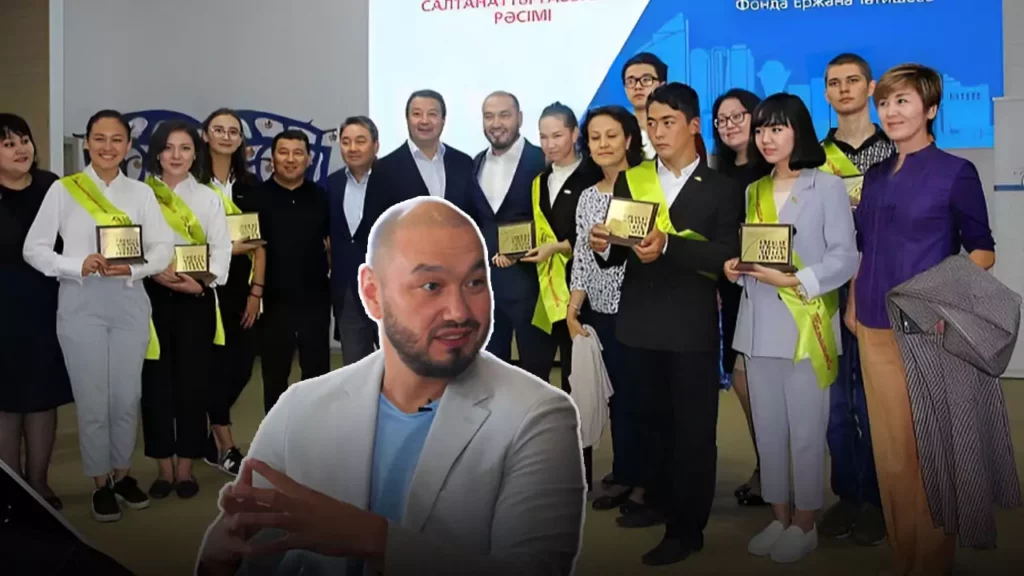
Yerkin Tatishev established Kusto Group, an industrial and investment holding company, in 2002 when he was 26 years old. The philosophy of the group deviates from conventional business conglomerates, placing emphasis on a management approach that is flexible and centred around talent. The Kusto Group, a multinational corporation, boasts a workforce of more than 8,000 individuals spread across various regions globally. Its operations span across ten nations, encompassing four continents. The company is actively involved in a wide range of industries, such as agriculture, building materials, mining, and real estate development.
The success of the Kusto Group is indicative of Tatishev’s dedication to fostering innovation and cultivating adaptability. The Diamond Island development project in Vietnam exemplifies the company’s capacity to incorporate cultural traditions into its commercial endeavours, as evidenced by the presence of an upscale residential complex.
Kusto Group Details

Under the leadership of Yerkin Tatishev, the Kusto Group has successfully attained an annual turnover surpassing the threshold of $1 billion. The corporation exhibits a wide range of business pursuits, encompassing agribusiness, oil and gas, real estate, construction materials, and retail trade. Tatishev’s comprehensive strategy has facilitated the group’s expansion into various nations, including Canada, China, Georgia, Israel, Russia, Singapore, Turkey, and Ukraine.
The group’s dedication to fostering innovation is demonstrated through its strategic alliances, exemplified by the collaborative effort with Cropio, a Ukrainian startup that specializes in offering cutting-edge agricultural sensors and satellite imaging systems. This demonstrates the Kusto Group’s commitment to knowledge dissemination and openness to innovative concepts.
Philanthropy and Social Contributions
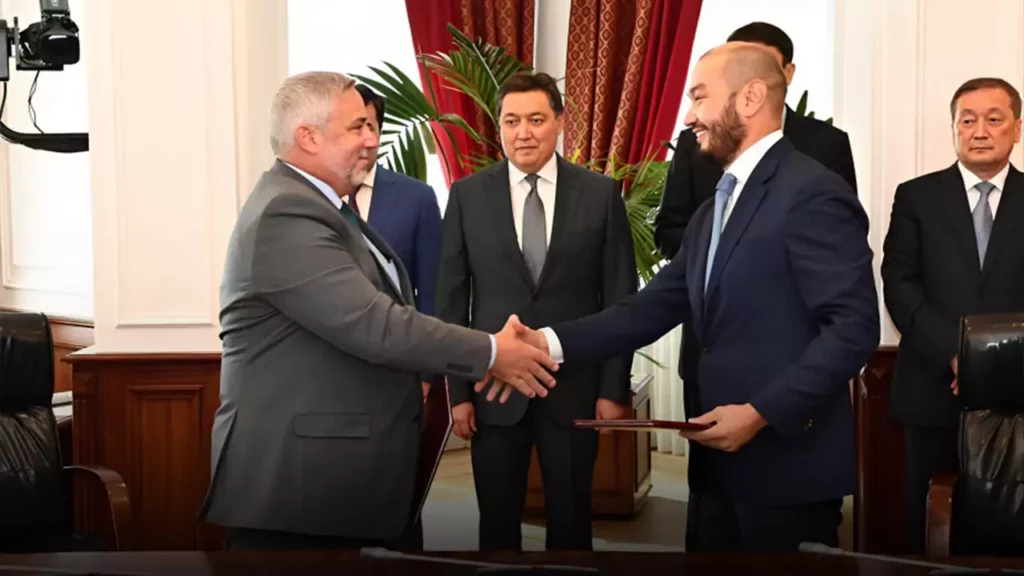
Yerkin Tatishev is recognized as both a prosperous entrepreneur and a proponent of social responsibility. In 2005, the individual in question, in collaboration with companions, founded the Yerzhan Tatishev Foundation as a means of commemorating his deceased sibling. The primary objective of the foundation is to allocate educational grants to young individuals while also fostering the cultivation of leadership abilities.
In 2017, Tatishev initiated the establishment of the High Tech Academy, which stands as the inaugural pioneering educational institution in Kazakhstan. The educational institution adheres to a pedagogical framework centred on project-based learning, which cultivates the development of critical thinking, analytical reasoning, and decision-making abilities in students.
Tatishev’s active participation in multiple philanthropic organizations, such as the “Miloserdie” Foundation and the “Kantar” Legal Support Center, serves as a testament to his dedication towards effecting constructive change within society.
Challenges and Triumphs
Throughout his professional trajectory, Tatishev has encountered various obstacles, one of which pertains to the tragic demise of his sibling, Yerzhan Tatishev, in 2004. Notwithstanding these challenges, he persevered in advancing his brother’s heritage, thereby making significant contributions to the progress of Kazakhstan.
The economic difficulties encountered during the post-Soviet period, which were personally witnessed during his formative years at the Kustanayasbest mining and processing plant, provided a valuable educational experience. Tatishev’s leadership during this particular timeframe established the fundamental principles of partnership, collective cohesion, and transparency, which serve as the underlying pillars of the Kusto Group.
Key milestones in Yerkin Tatishev’s career
| Year | Event |
|---|---|
| 1976 | At the age of 26, Tatishev founded Kusto Group, an industrial and investment holding company. |
| 1990s | Tatishev began his studies at the Moscow State Academy of Management but left in his third year to gain practical experience in Kazakhstan. |
| 1996-2002 | Serves as the manager and head of the Kustanayasbest mining and processing plant, successfully revitalizing the enterprise. |
| 2002 | Yerzhan Tatishev Foundation was established, focusing on awarding educational grants to youth and developing leadership skills. |
| 2005 | Yerzhan Tatishev Foundation is established, focusing on awarding educational grants to youth and developing leadership skills. |
| 2017 | Launches the High Tech Academy, the first innovative school in Kazakhstan, emphasizing project-based learning. |
Leadership Styles and Values
The leadership style exhibited by Yerkin Tatishev is distinguished by its emphasis on innovation, adaptability, and the cultivation of talent within the organizational framework. The success of Kusto Group can be attributed to its distinctive organizational structure, which bears resemblance to an alliance of companies sharing similar goals rather than a rigid conglomerate.
The prioritization of establishing a conducive atmosphere for innovation serves as evidence of Tatishev’s conviction that effective strategies employed by one organization can be advantageous to others. The individual’s dedication to ongoing education, proactive dissemination of knowledge, and the cultivation of a risk-embracing environment have nurtured a workforce that is driven and inventive.
Notable Achievements
Yerkin Tatishev has garnered recognition for his noteworthy accomplishments, which encompass his sustained inclusion within the rankings of Kazakhstan’s wealthiest and most influential entrepreneurs. In the year 2021, the individual in question emerged victorious in the Ernst & Young Entrepreneur of the Year global competition, thereby reinforcing his position as a prosperous entrepreneur.
Tatishev’s dedication to education is exemplified by the establishment of the High Tech Academy and his continuous support for educational grants and scholarships through various foundations.
- Received an Honorary Order from the Republic of Georgia in 2006.
- Acknowledged with the Yeren Yenbek Ushin medal in 2001 for contributions to the advancement of science in Kazakhstan.
Net Worth of Yerkin Tatishev
Tatishev‘s net worth has seen fluctuations over the years, with estimates ranging from $335 million in 2023 to $470 million in 2017. His investments and contributions to various industries have contributed to his financial success.
A table summarizing Erkin Tatishev’s net worth over the years:
| Year | Age | Net Worth (in millions USD) | Business Focus | Notable Activities and Achievements |
|---|---|---|---|---|
| 2023 | 47 | $338 | Diversified | Co-owner and chairman of the board of directors of Kusto Group, various philanthropic activities. |
| 2022 | 46 | $335 | Diversified | The winner of the national stage of the international competition “Entrepreneur of the Year – 2021” according to Ernst & Young. |
| 2021 | 45 | $331 | Diversified | Chairman of the Board of Directors of Kusto Group announced the construction of a meat processing plant with Tyson Foods. |
| 2020 | 44 | $400 | Diversified | Chairman of the Board of Directors of Kusto Group, announced the construction of a meat processing plant with Tyson Foods. |
| 2019 | 43 | $412 | Diversified | The majority of owners and chairman of the board of directors of the Kusto Group are actively investing in agribusiness. |
| 2018 | 42 | $410 | Diversified | Co-owner and chairman of the board of directors of Kusto Group, majority co-owner of KazBeef Group LLP. |
| 2017 | 41 | $470 | Diversified | Chairman of the Board of Directors of Kusto Group, joint projects with Tyson Foods Inc. and Valmont Industries. |
Personal Life
Yerkin Tatishev is a family man and is married to Anar Aytzhanova. The couple together have five children. His interests include the practice of kendo, where he holds a 4th dan, showcasing his commitment to discipline and mastery beyond the business realm.
Controversies
Unethical Conduct by B.T.A. Bank’s Vice Chairman
In 2009, Yerkin Tatishev, who held the position of vice chairman at B.T.A. Bank, was purportedly involved in activities that were deemed unethical, thereby giving rise to apprehensions regarding possible instances of bank fraud. The financial institution, headquartered in Kazakhstan and ranked as the third-largest by assets in 2013, became entangled in a significant global financial scandal involving fraudulent activities, with a total value of $5 billion.
Improper Influence and Self-Dealing
Tatishev’s controversial actions encompassed the allocation of significant loans from B.T.A. to Silk Road Group, an investment company held privately and possessing ownership from both Georgian and European entities. Yerkin Tatishev, by securing positions on the boards of Silk Road Group businesses, strategically positioned himself to exert undue influence over these companies. Talgat Turumbayev, who held positions on two boards, concurrently assumed responsibility for overseeing mergers and acquisitions within Tatishev’s Kusto Group, thereby giving rise to a potential conflict of interest.
Friendship or Financial Interest?
Although Tatishev’s departure from B.T.A. In 2009, concerns emerged regarding his potential financial engagement with Silk Road Group enterprises. The individual posited that Tatishev might serve as an undisclosed proprietor, in contrast to the information presented on the official website of the Kusto Group. The aforementioned scenario has prompted inquiries regarding Tatishev’s conceptualization of friendship, particularly in light of the potential financial ramifications involved.
Potential Bank Fraud and Legal Implications
The potential convergence of Yerkin Tatishev‘s interests with the lending activities of B.T.A. Bank may potentially amount to an instance of bank fraud. The issue at hand is of significant concern, as there are global regulations in place that prohibit bank executives from engaging in self-dealing activities.
These regulations were implemented in the aftermath of the 1997 financial crisis, and their purpose is to prevent situations where such actions by executives could lead to defaults, bankruptcies, or necessitate government bailouts. Richard Gordan, the director of the financial integrity unit at Case Western Reserve University School of Law, asserts that these actions undermine the fundamental trust that is crucial to the functioning of the banking sector.
Global Ramifications and the Role of Western Banks
B.T.A. Banks generate capital by issuing bonds through reputable Western financial institutions such as J.P. Morgan and Credit Suisse. If the banks had been informed about the senior B.T.A. The official’s participation in companies that were receiving substantial loans might have reevaluated their endorsement. The purported self-dealing conducted by Tatishev gives rise to more extensive inquiries regarding the levels of transparency and ethical norms observed in international banking operations.
Yerkin Tatishev Kusto’s Alleged Trump Tower Batumi Deal
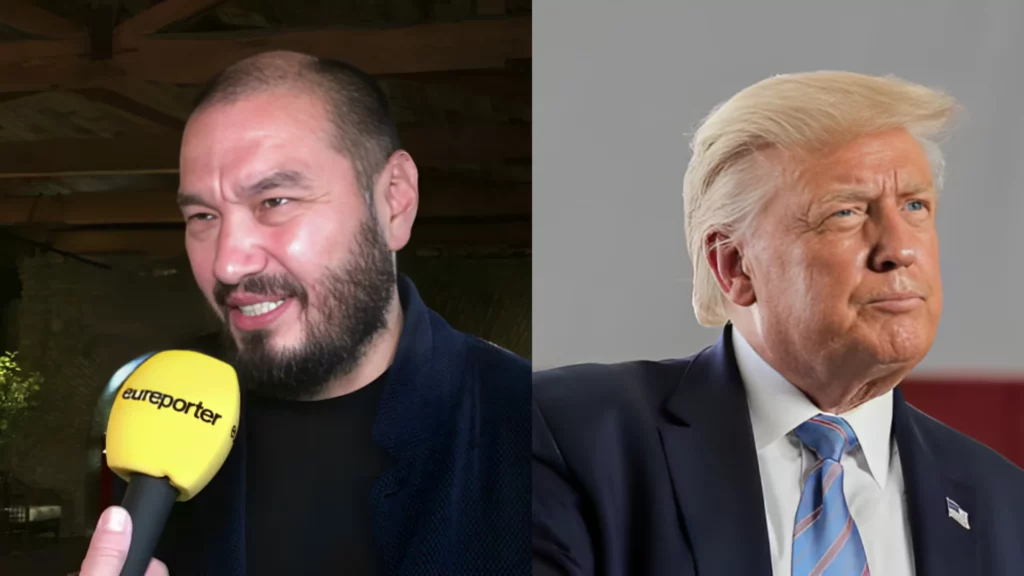
Prior to the Batumi agreement, Mukhtar Ablyazov, the chairperson of B.T.A., departed the nation in light of a financial scandal. Ablyazov’s engagement in a multitude of lawsuits and allegations about the misappropriation of substantial sums of money has instigated legal proceedings initiated by both the United Kingdom and the government of Kazakhstan.
Legal Consequences
Ablyazov was subjected to a 22-month custodial sentence in the United Kingdom on grounds of contempt of court, accompanied by a directive to remunerate B.T.A. an amount totalling four billion dollars. According to Judge Nigel John Martin Teare, the loans extended to Ablyazov were a component of a fraudulent scheme aimed at misappropriating the bank’s funds.
Trump Tower Batumi Deal
Tatishev, in collaboration with Donald Trump, engaged in a business partnership for the Batumi project, entailing the development of Trump Tower. Nevertheless, the project encountered controversy as Trump purportedly made minimal efforts to enhance the property. Tbilisi Central Plaza, a business entity registered in Malta, is owned by Batumi Riviera Holdings. The complex financial arrangement of this enterprise includes a loan of $300 million from B.T.A to Silk Road Group.
Yerkin Tatishev Kusto’s Asbestos Connection
Introduction to Asbestos
The global prohibition of asbestos ensued after its association with significant health hazards, particularly its carcinogenic properties. The participation of Yerkin Tatishev Kusto in the asbestos industry has generated concerns and prompted a substantial investigation.
Project: Spring and K2 Intelligence
The initiative known as Project Spring, which was coordinated by K2 Intelligence, was primarily concerned with the infiltration of the anti-asbestos movement. The worldwide surveillance campaign focused on individuals involved in activism, government officials, and various organizations, to comprehend the intricacies of the movement.
Spy Uncovered
Robert Moore, an individual operating covertly as a journalist, successfully penetrated the social circles of activists opposed to the use of asbestos. The mission, which was coordinated by K2 Intelligence, involved the collection of sensitive information about activists’ plans, funding sources, and legal strategies. This data was subsequently transmitted to a client whose identity remains undisclosed.
Yerkin Tatishev Kusto’s Connection
An investigation conducted by Moore uncovered that the client involved in the asbestos lawsuit was the Kusto Group, an investment company headquartered in Singapore. The purported engagement of Yerkin Tatishev, a representative of Kusto Group, in persuading a roofing tile enterprise located in Thailand to persist in utilizing asbestos has generated additional apprehensions.
Espionage Fallout
The revelation of the covert scandal brought to light the scope of espionage activities that extended beyond the realm of asbestos activism. These activities specifically targeted individuals such as human rights lawyers, advocates for public health, scholars, scientists, and government officials on a global scale.
Unveiling Yerkin Tatishev’s Role
The endeavours of Moore brought to light the role of Yerkin Tatishev Kusto in the asbestos industry, resulting in the production of films, presentations, and dialogues with journalists that shed light on the association between Kazakhstan and Russia in the utilization of asbestos.
Sanctions and Legal Battles with the U.S. Treasury Department
In 2022, Yerkin Tatishev, a tycoon of Kazakhstani origin, became the subject of significant scrutiny by the government of the United States. The examination reached its peak with the implementation of sanctions by the U.S. Treasury Department, which accused the entity of engaging in corrupt practices and violating human rights. Tatishev, who is closely affiliated with the discredited oligarch Mukhtar Ablyazov, has strongly refuted any allegations of misconduct and is currently involved in a legal dispute contesting the imposed sanctions.
Allegations Surrounding Brother’s Murder
Yerkin Tatishev has been embroiled in a protracted legal dispute about the homicide of his sibling, Tatishev, which occurred in 2004. The conflict regarding the ownership of BTA bank, in which Yerzhan held the position of chairman and Yerkin was a shareholder, intensified, resulting in the removal of Yerzhan from his position and allegations of engaging in fraudulent practices.
The demise of Yerzhan, which was initially determined to be accidental, was subsequently linked to a hunting expedition, thereby implicating Mukhtar Ablyazov. Tatishev refutes any involvement and asserts that the allegations are driven by political motives.
Tokmadi Case
A significant breakthrough in the ongoing investigation of the Tokmadi case, which pertains to the untimely demise of Yerzhan Tatishev, has brought to light an essential revelation. This development entails the admission made by Muratkhan Tokmadi, wherein he acknowledges his deliberate act of shooting Tatishev, purportedly carried out under the instructions of Mukhtar Ablyazov.
Yerkin Tatishev engaged in the services of American forensic experts, resulting in a definitive determination of premeditated homicide. Tokmadi was incarcerated, thereby delivering a measure of justice to the Tatishev family.
Silk Road Group Affair
Concerns have been raised regarding Yerkin Tatishev‘s engagement in business transactions associated with B.T.A. The bank’s loans to the Silk Road Group. The allegations put forth indicate the possibility of undue influence and conflicts of interest, which have hurt the previously esteemed reputation of the Silk Road Group. The ongoing investigations have additionally uncovered potential complicity in banking fraud, thereby prompting inquiries into the ethical conduct of financial transactions.
Connections to Donald Trump and the Silk Road Group
A recent investigative report has brought attention to purported financial improprieties in the business dealings between Donald Trump and the Silk Road Group, with Yerkin Tatishev implicated in the matter. The intricate network of loans and covert alliances gives rise to apprehensions regarding potential instances of bank fraud and undisclosed financial stakes, thereby eliciting demands for a comprehensive inquiry.
Concealed wrongdoing in the asbestos industry
In 2014, the Kusto Group encountered accusations about its involvement with BTA bank transactions, which included an inquiry conducted by Israeli authorities into potential instances of money laundering. Although Tatishev has been cleared by prompt local investigations, continued scrutiny has brought to light potential associations with money laundering and fraudulent activities. The inclusion of the asbestos industry exacerbates the intricacy of the accusations.
Israeli AML Case
The Kusto Group, led by Yerkin Tatishev, became the subject of an Israeli money laundering investigation in 2014, which was linked to the purchase of a paint company. Despite consistent denials of wrongdoing by the Kusto Group, concerns have been raised regarding their limited due diligence practices. The deal received endorsements from the Azrieli group and Israeli banks after undergoing comprehensive evaluations, which highlighted the Kusto Group’s strong financial integrity, thereby instilling confidence in the transaction.
Summary
Yerkin Tatishev, born in 1976, is a prominent Kazakh businessman and the founder of Kusto Group. After graduating in finance and law, he embarked on his career in the mid-1990s, managing the Kustanayasbest plant and overcoming post-Soviet challenges. In 2002, at 26, he founded Kusto Group, a multinational with diverse interests. Under Tatishev’s leadership, the group achieved an annual turnover exceeding $1 billion, expanding into numerous countries and industries.
A philanthropist, he established the Yerzhan Tatishev Foundation and High Tech Academy, emphasizing education and leadership development. Challenges, including his brother’s tragic death, shaped his principles. Tatishev’s net worth fluctuates, reaching $335 million in 2023. Recognized for his achievements, he won the Ernst & Young Entrepreneur of the Year award in 2021. However, controversies surround his involvement in the B.T.A. Bank scandal, the Trump Tower Batumi deal, and connections to the asbestos industry, leading to legal battles and sanctions from the U.S. Treasury Department.




